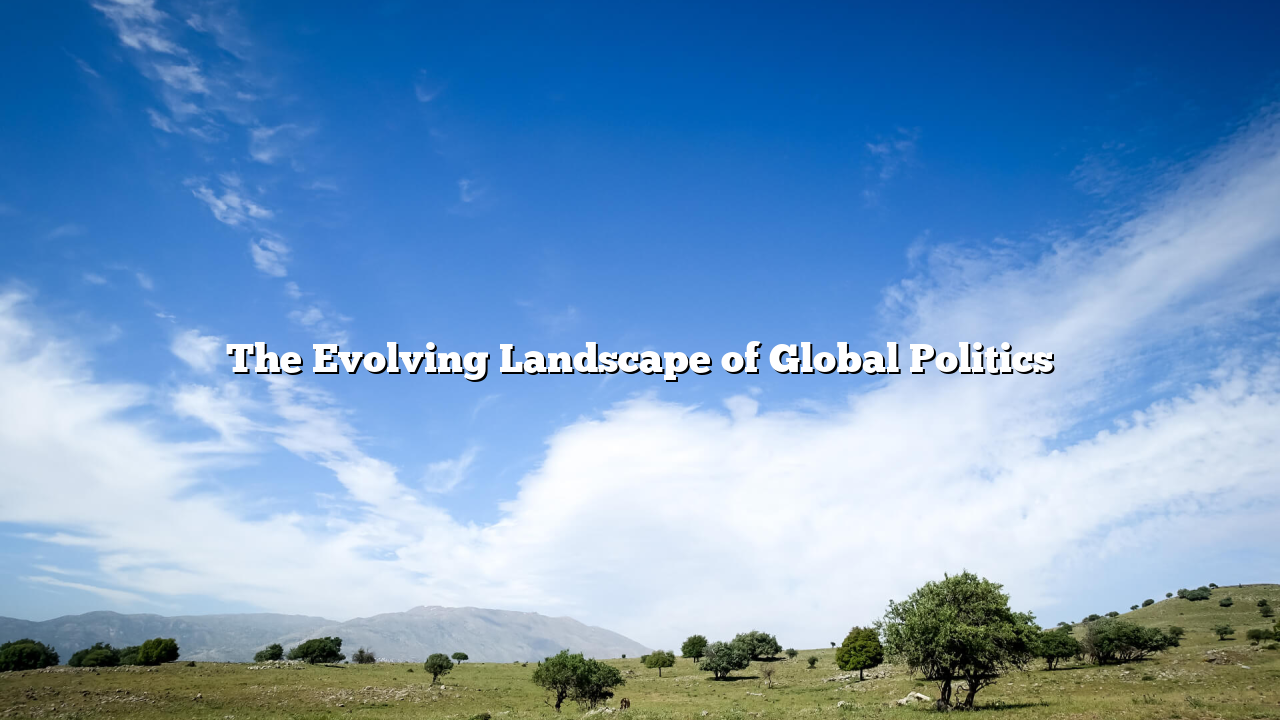In recent decades, global politics has undergone significant changes, driven by shifting alliances, emerging powers, and rapid technological advancements. The world is no longer defined by a bipolar system of superpowers, as seen during the Cold War, but by a multipolar arrangement where various countries play pivotal roles in regional and international affairs. This evolution reflects the increasing complexity of political interactions in a globalized era.
One of the most noticeable shifts is the rise of ugbet88 emerging economies such as China, India, and Brazil. These countries are not only asserting greater influence within global institutions like the United Nations and World Trade Organization, but are also creating their own platforms to challenge traditional Western dominance. For example, the BRICS group (Brazil, Russia, India, China, and South Africa) aims to promote economic cooperation and a more balanced world order.
At the same time, Western democracies are facing internal and external challenges. In the United States and Europe, political polarization and populist movements have weakened traditional party structures. Leaders who promise nationalistic reforms often clash with established democratic norms, leading to political instability. Brexit, the Capitol riots, and the rise of far-right parties in Europe reflect growing dissatisfaction among citizens with the political status quo.
Technological change has also played a central role in transforming politics. Social media platforms such as Twitter, Facebook, and TikTok have become powerful tools for political engagement, campaigning, and activism. While these platforms provide opportunities for greater citizen participation, they have also contributed to the spread of misinformation, political manipulation, and foreign interference in democratic processes.
Climate change has emerged as a key political issue as well. Governments across the globe are grappling with the pressure to implement policies that address environmental concerns while maintaining economic growth. International agreements like the Paris Climate Accord are steps in the right direction, but progress remains uneven due to conflicting national interests and resource limitations.
Another trend is the decline of global cooperation and the resurgence of protectionism. In recent years, many nations have adopted inward-looking policies, prioritizing national security and self-sufficiency over multilateralism. Trade wars, immigration restrictions, and reduced funding for international organizations signal a retreat from globalization. However, this approach may hinder efforts to solve transnational challenges like pandemics, terrorism, and climate change, which require collective action.
Despite these challenges, there are reasons to remain hopeful. Youth-led movements advocating for social justice, climate action, and democratic reforms are gaining momentum worldwide. Additionally, new diplomatic initiatives and regional partnerships are forming to promote stability and development, particularly in Asia and Africa.
In conclusion, the political landscape today is marked by both volatility and opportunity. While the rise of populism, digital disruption, and geopolitical rivalries pose serious risks, they also highlight the need for adaptive governance, stronger democratic institutions, and inclusive leadership. As nations navigate these uncertain times, collaboration, transparency, and resilience will be essential in shaping a more just and sustainable global future.
